ISCRAES 2024 symposium highlights advancing sustainable agriculture and driving climate resilience
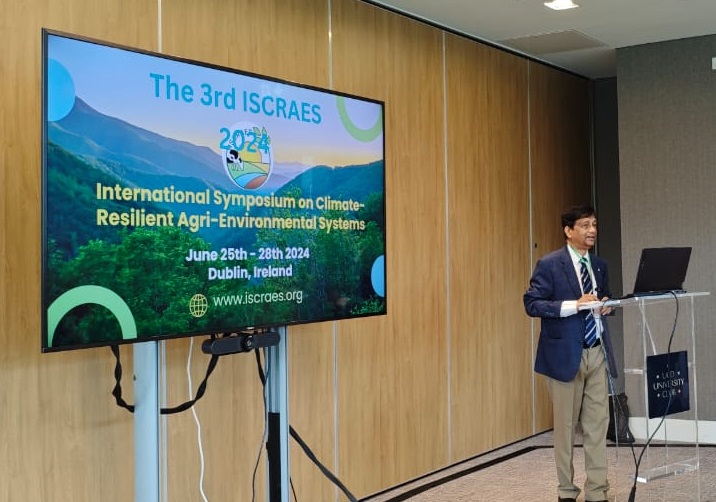
Dr Ibrahim Khalil's welcoming address to ISCRAES symposium at UCD, June 2024.
The Third International Symposium on Climate-Resilient Agri-Environmental Systems (ISCRAES 2024) which took place in late June at the UCD University Club was a resounding success. The event commenced with a welcome address by Ibrahim Khalil (UCD School of Agriculture and Food Science), Convenor of ISCRAES. Charlie McConalogue TD, Ireland’s Minister for Agriculture, Food and the Marine, delivered the opening speech, highlighting Ireland's advancements in agri-environmental systems and engaging with delegates' questions.
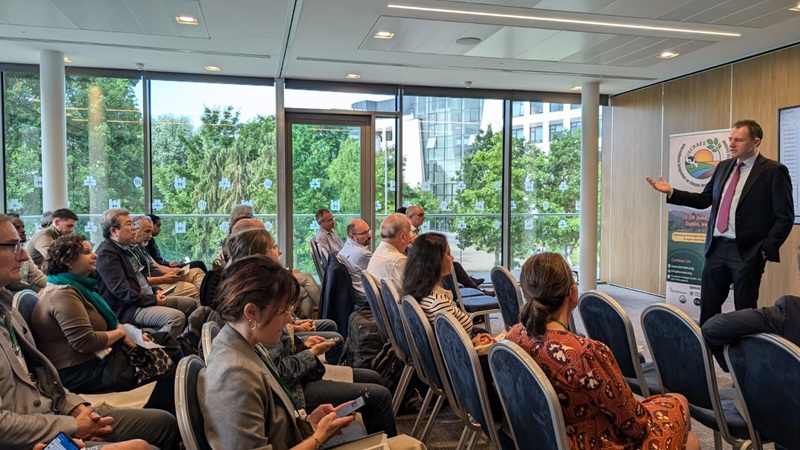
Charlie McConalogue TD, Ireland’s Minister for Agriculture, Food and the Marine, delivering the opening speech at ISCRAES 2024.
The symposium featured an array of esteemed speakers. David Laborde, Director of the Agrifood Economics Division at FAO, Italy, discussed transforming agrifood systems for global food security and climate resilience. Juan L. Restrepo, Global Director at CGAIR, France, emphasised boosting climate action through partnerships and collaboration.
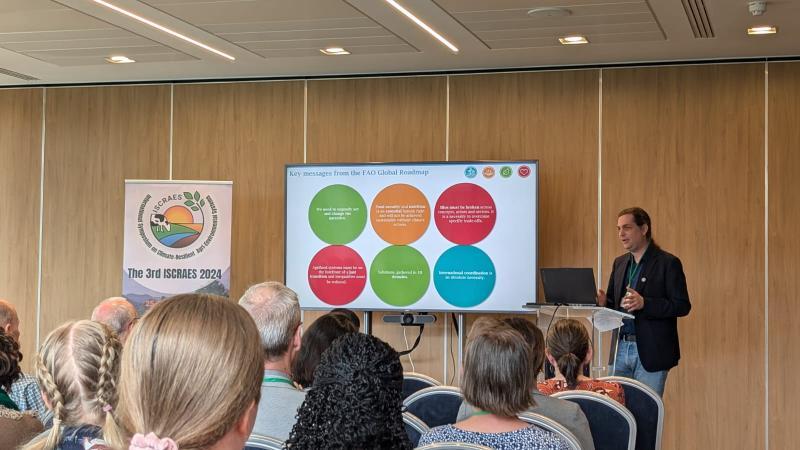
David Laborde, Director of the Agrifood Economics Division at FAO, Italy, speaking at ISCRAES 2024.
Distinguished plenary speakers included Pat Dillon, Director of Research at Teagasc, Ireland, who spoke about Ireland's strategy to reduce greenhouse gas emissions from agriculture by 25% by 2030. Ada Ignaciuk, Senior Economist/Policy Analyst at OECD, France, discussed advancing agriculture, forestry, and land use policies, while Jens Leifeld, Head of the Climate and Agriculture Group at Agroscope, Switzerland, addressed climate-smart management of agricultural organic soils.
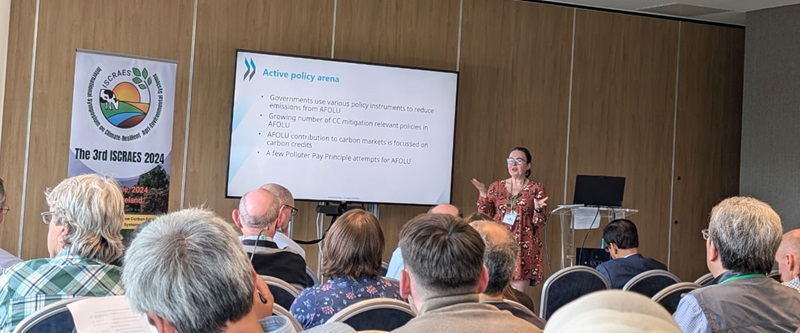
Ada Ignaciuk, Senior Economist/Policy Analyst at OECD, France, speaks at ISCRAES 2024.
Scientific sessions covered diverse topics. The Grassland Systems session included discussions on climate-resilient grasslands, nitrogen fertilizer experiments, and the impacts of climate change on soil macroaggregates in Alpine grasslands. The Climate Change and Agro-farming Policy session featured presentations on climate adaptation policies, global carbon sequestration potential, and low-emission transformations in agriculture.
In the Regenerative Agriculture & Nature-based Solutions session, experts explored the potential of regenerative agriculture, the combined effects of drought and salinity on baobab seed germination, and scaling nature-based solutions for resilient agriculture. The session on Arable Cropping Systems included talks on CO2 emissions from winter wheat-summer maize soil, integrated farming systems models, and sustainability challenges such as herbicide-resistant grass weeds.
The Agroforestry Systems session presented studies on climate resilience across European agroforestry networks, land-use change modelling through agroforestry, and carbon sequestration in Mediterranean wood pastures. During the Decision Support Systems in Agro-Farming session, discussions included crop modelling for climate-resilient agriculture, with a focus on the agricultural systems digital platform HOLOS-IE prototype, effects of manure application on productivity, and technical support systems for precision agriculture.
Invited expert insights on precision agriculture and how to make a farm carbon-neutral initiative in Ireland provided valuable perspectives. The Biodiversity in Agriculture session focused on farmland pollinators, the relationship between plant diversity and ecosystem conditions, and strategies to halt biodiversity decline and maximise nutrient cycling.
The final session on Biogeochemical Processes in Agro-Farming featured discussions on the role of soil fauna, N2O emissions from agricultural peat, and optimising carbon storage on farmers' land. The symposium concluded with a workshop on the pros and cons of livestock reintegration, sponsored by the ReLive Project funded by ERA-NET.
The organising committee expressed gratitude to the opening and plenary speakers, invited experts, national and international delegates, and sponsors, including EPA Ireland, Failte Ireland, HOLOS-IE Project, ReLive Project, MDPI, UCD Earth Institute, and Prudence College Dublin. Special thanks were extended to the assistants from HOLOS-IE and the TrueSoil Team.
The 4th ISCRAES is scheduled to be held in 2026, promising to build on the success of this year’s event and continue advancing the discourse on climate-resilient agri-environmental systems.
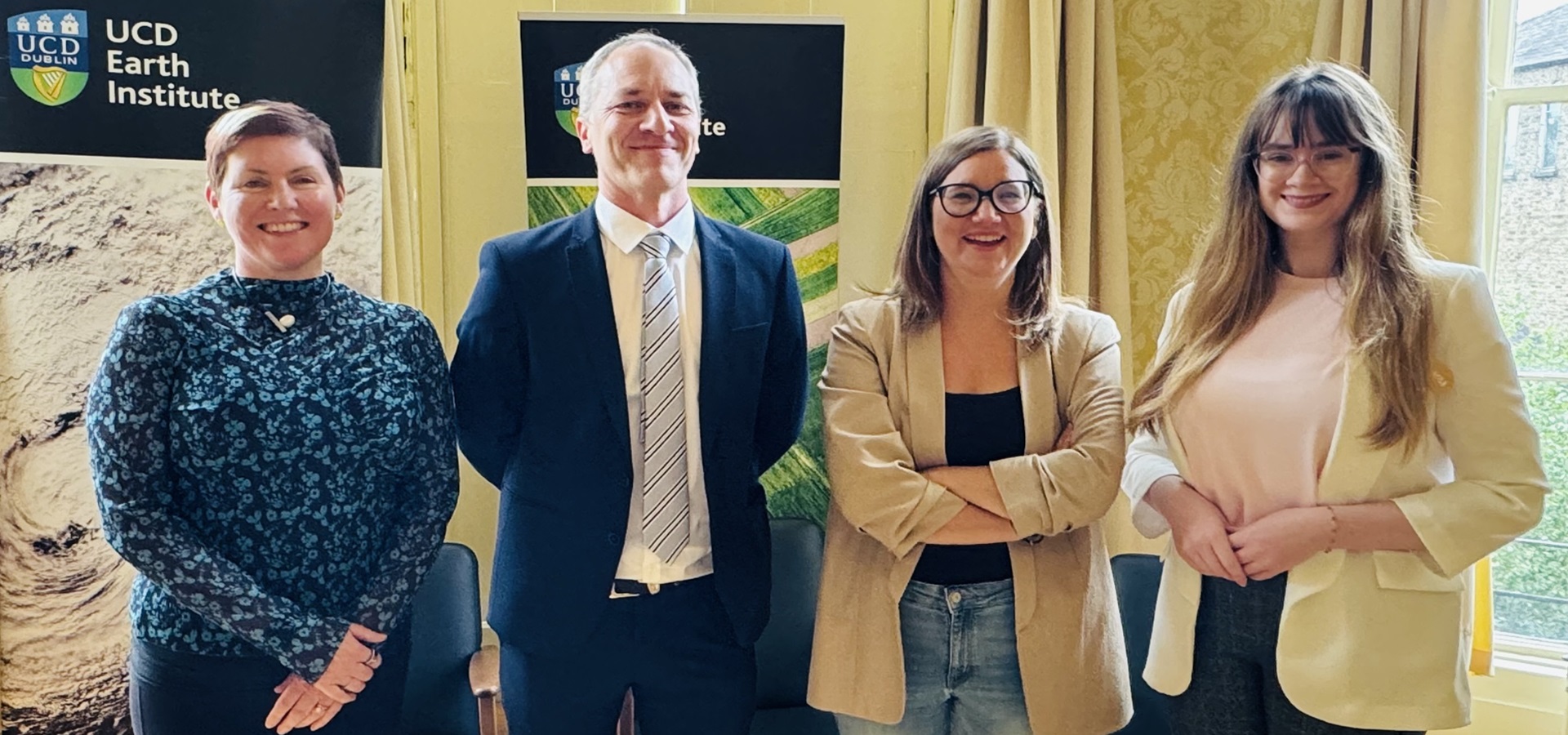
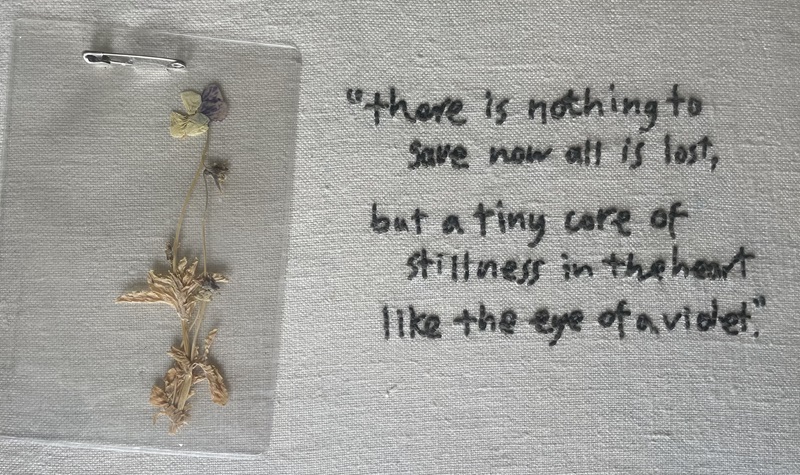
.jpg)